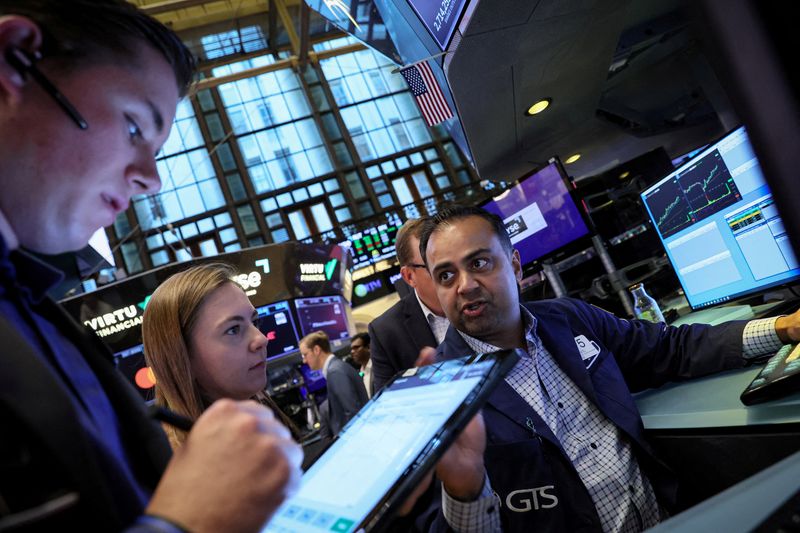Investing.com -- The Dow rose Wednesday, shrugging off the Federal Reserve raising interest rates to their highest level in 22 years and a Microsoft-fueled stumble in tech.
The Dow Jones Industrial Average rose 0.2%, or 82 points, Nasdaq was down 0.1%, and the S&P 500 was flat.
Fed Delivers 11th Hike to Curb Inflation
The Federal Reserve raised interest rates by a quarter-point on Wednesday, and signaled a need to see further signs of slowing price pressures to declare victory on inflation.
Recent economic data showing slowing inflation in June was welcomed, but it was "only one report in one month's data," Fed Chairman Jerome Powell said in a press conference that followed the rate decision.
"We hope that inflation will follow a lower path, consistent with the June CPI reading," he added. "But we don't know that and we're going to need to see more data."
Microsoft shines, Google slips on earnings stage
Microsoft (NASDAQ:MSFT) fell nearly 4%, souring sentiment on the broader tech sector, as the tech giant's guidance for the fiscal first quarter came in below Wall Street estimates offsetting better-than-expected quarterly results.
"While a bit underwhelming, the print wasn’t a thesis-changer, our EPS numbers are moving up not down and we remain positive on the AI story in 2024," UBS said in a note.
Alphabet (NASDAQ:GOOGL), meanwhile, reported second-quarter results that topped Wall Street estimates on both the top and bottom lines, sending its shares more than 5% higher.
Snap (NYSE:SNAP) also faltered on the earnings stage, falling more than 14% after its third-quarter guidance on sales missed Wall Street estimates. The social media company did, however, report better-than-feared quarterly results.
Boeing, Texas Instruments Incorporated slump on revenue miss
Boeing Co (NYSE:BA) rallied more than 8% after reporting a smaller-than-expected loss in the second quarter and the aircraft maker detailed plans to ramp up projections.
Texas Instruments Incorporated (NASDAQ:TXN), a semicondutor bellwether, fell more than 5% on fears about weak chip demand after forecasting revenue for the September quarter below Wall Street estimates.
